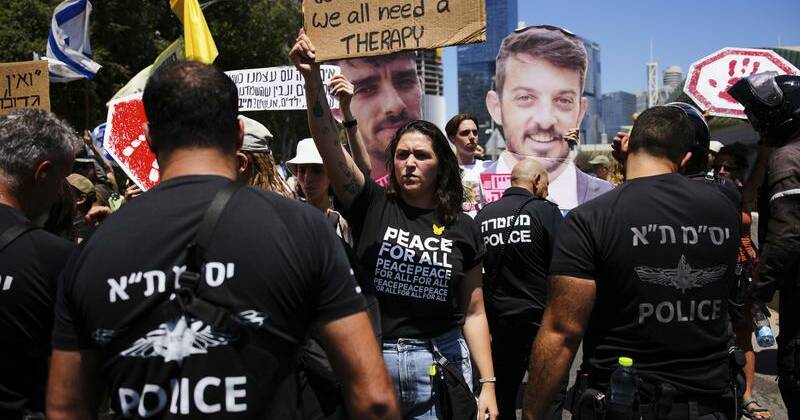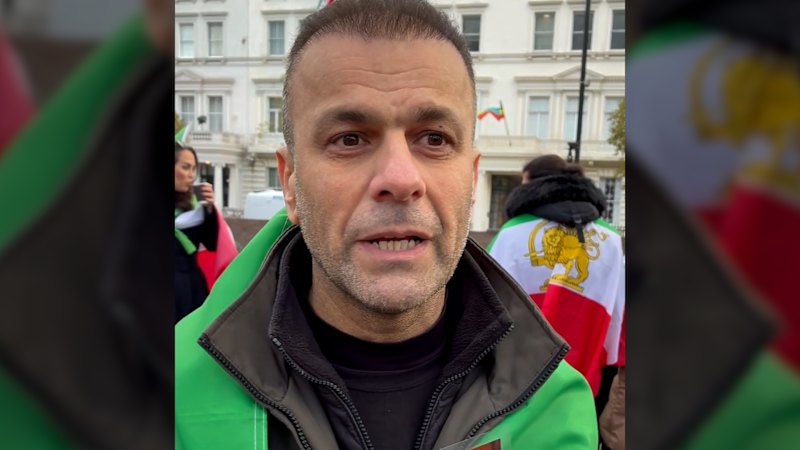
Thousands of Israelis participated in a nationwide strike on March 10, 2024, urging Prime Minister Benjamin Netanyahu to negotiate with Hamas for an end to the ongoing conflict and the release of hostages held in Gaza. The protests, marked by demonstrators waving Israeli flags and carrying photos of their loved ones, echoed with whistles, horns, and drums across cities, including significant gatherings in Tel Aviv and Jerusalem.
Anat Angrest, the mother of hostage Matan Angrest, addressed the crowd in Tel Aviv, stating, “Today, everything stops to remember the highest value: the sanctity of life.” The strike, organized by families of the hostages, aimed to amplify calls for a diplomatic resolution as tensions continue to escalate following Israel’s military operations in Gaza.
Some businesses and institutions supported the strike, allowing employees to participate, although many remained open during the working day. Schools, currently on summer recess, were unaffected. A major rally was planned for later in the evening in Tel Aviv.
Israeli police reported that 38 protesters were detained during the demonstrations, particularly those blocking key roads and highways, including the main route between Jerusalem and Tel Aviv. Opposition leader Yair Lapid, who joined the rally in Tel Aviv, expressed solidarity with the demonstrators, stating on social media, “The only thing that strengthens the country is the wonderful spirit of the people who are going out from home today for Israeli solidarity.”
In contrast, Prime Minister Netanyahu addressed his cabinet, asserting that calls to end the war without defeating Hamas would only strengthen the group’s position and hinder the release of hostages. He emphasized, “They are also ensuring that the horrors of October 7 will repeat themselves over and over again,” referencing the attacks that initiated the current conflict.
Netanyahu’s government remains determined to execute plans for a military takeover of Gaza City, a move that has faced significant opposition among the public and the families of hostages. Concerns are mounting that this expansion could jeopardize the lives of the approximately 50 hostages believed to be held by militants, with Israeli officials estimating that around 20 of them are still alive.
The conflict, which has persisted for nearly two years following the Hamas-led attacks on Israel on October 7, 2023, has seen most hostages freed through diplomatic negotiations. Attempts to negotiate a ceasefire that might lead to further releases collapsed in July. Hamas has stated it will only release the remaining hostages if Israel agrees to halt military operations, while Netanyahu has insisted that Hamas cannot remain in power.
Internationally, the Israeli government has faced criticism regarding its military strategy, particularly the announcement of plans to seize Gaza City. On March 10, Hamas condemned the strategy as “criminal,” warning it would lead to the displacement of hundreds of thousands of Palestinians.
According to local health officials, more than 61,000 Palestinians have been killed during Israel’s military campaign in Gaza, with at least 29 reported fatalities in just the past day. The violence has also had a significant toll on Israeli forces, with over 400 soldiers killed since the outbreak of hostilities. The ongoing conflict continues to raise urgent humanitarian concerns as families on both sides seek resolution and peace.







